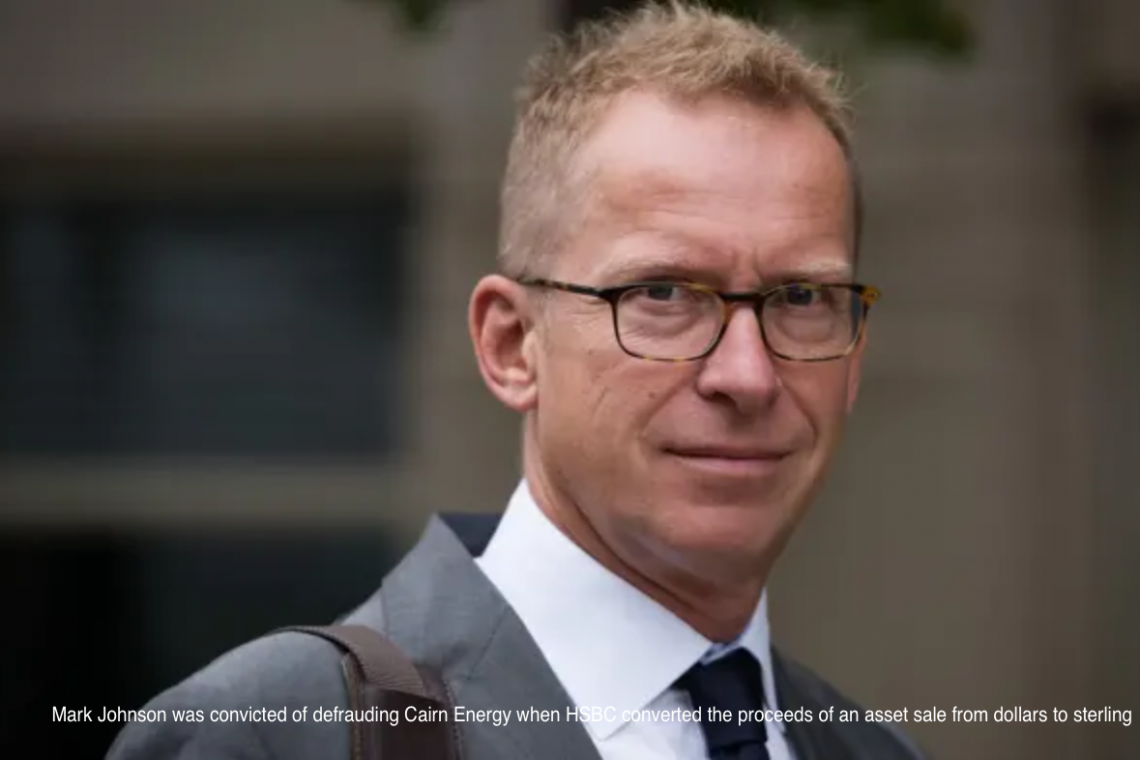Mark Johnson, HSBC’s former chief currency dealer, lost his appeal against his conviction in the US for wire fraud over a foreign-exchange deal involving Cairn Energy.
Case revolved around $3.5bn transaction for energy group Cairn Energy
Johnson was convicted by a New York court in 2017 for defrauding the Scottish energy company over a $3.5bn transaction in 2011 in which HSBC was hired to convert the proceeds of an asset sale from dollars to sterling. He had been arrested while travelling through New York’s John F Kennedy airport.
Johnson’s case was the first jury trial to stem from the forex-rigging scandal, for which banks paid around $10bn in fines. He was fined $300,000 and sentenced to two years in a federal prison, but later allowed to return to the UK pending his appeal.
But on Thursday, the US Court of Appeals for the Second Circuit ruled that there was sufficient evidence for a jury to conclude that Johnson had deprived Cairn of the ability to make proper economic decisions and that he had made material misrepresentations to the company.
“We conclude that Johnson’s misrepresentations provided sufficient evidence for a reasonable jury to find beyond reasonable doubt that he intended to defraud Cairn,” the judgment read.
Alexandra Shapiro, Johnson’s New York-based attorney, said: “We are extremely disappointed with the result. Mark Johnson is innocent. We intend to keep fighting to ensure that justice prevails and will explore every legal avenue possible to clear his name.”
It is not clear whether he will have to return to the US to serve the remainder of his sentence. He is married with five children and his family home is in England.
Prosecutors at his jury trial argued that using code phrases such as “my watch is off”, Johnson tipped off colleagues who traded for the bank itself before processing its client’s order in what amounted to front-running.
A focal point in the trial was whether it was proper for HSBC to make an $8m profit from the transaction — a sum large enough to prompt Johnson to exclaim that it was “f****** Christmas”, even though the profits for the bank represent only 0.2 per cent of the overall deal.
His conviction was a boon to the US Department of Justice, which investigated the rigging of the $5tn-a-day global forex market, but it also sparked arguments about the long arm of US justice.
The DoJ has fared less well in cases against other British traders, with the Lord Chief Justice of England and Wales last year ruling that it was not in the interests of justice to extradite Johnson’s alleged co-conspirator, Stuart Scott. Mr Scott was head of forex cash trading for Europe, the Middle East and Africa until he left HSBC in 2014.
In another forex-rigging case brought by DoJ, three British-based traders at Barclays, Citigroup and JPMorgan were acquitted by a New York jury.
The DoJ and HSBC declined to comment on Thursday’s judgment.


